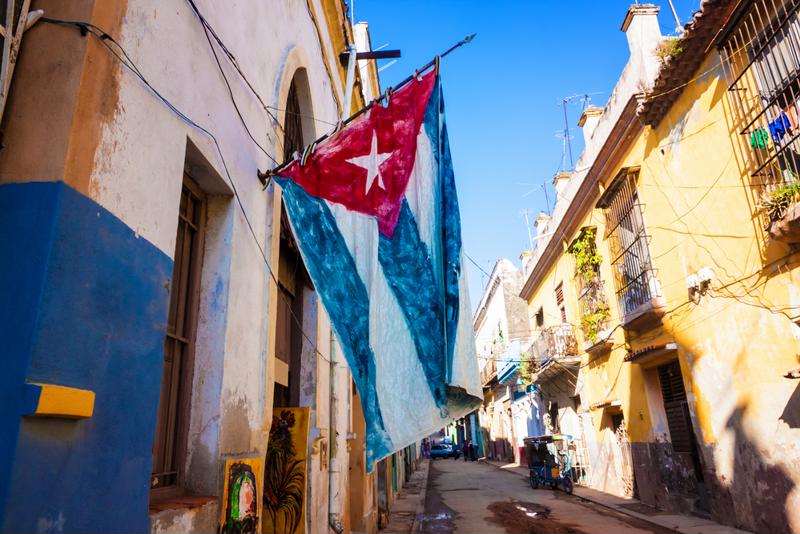For nearly 55 years, there’s been a trade embargo on any and all goods between the United States and Cuba, implemented under the administration of President John F. Kennedy. But as the two nations begin to renew foreign and diplomatic relations, Cuba’s president is calling for an end to the embargo.
During a summit of the Community of Latin American and Caribbean States on Jan. 31, Cuban President Raul Castro indicated that if the two countries are to restore ties, a lifting of the trade cut-off has to be included.
“The re-establishment of diplomatic relations is the start of a process of normalizing bilateral relations,” Castro told delegates during the summit, as reported by NBC News. “But this will not be possible while the blockade still exists, while they don’t give back the territory illegally occupied by the Guantanamo naval base.”
“The trade embargo on Cuban goods has been in effect since the early 1960s.”
The base at Guantanamo Bay has long been a subject of intense debate among political observers, trade and military experts. Obama made the closing of its base a major part of his administration, pledging to close it in the early days of his first term as commander in chief. The U.S. has held a base at Guantanamo since 1903.
‘It’s time for a new approach’
During the State of the Union address, Obama called on the U.S. Congress to ease some of the trade restrictions between the U.S. and Cuba, saying that restoring ties will do great things for both countries.
“When what you’re doing doesn’t work for 50 years, it’s time to try something new,” Obama told Congress. “Our shift in Cuba policy has the potential to end a legacy of mistrust in our hemisphere; removes a phony excuse for restrictions in Cuba; stands up for democratic values; and extends the hand of friendship to the Cuban people. And this year, Congress should begin the work of ending the embargo.”
 The U.S. and Cuba are renewing diplomatic relations, more than 50 years after a trading blockade was installed by the U.S. government.
The U.S. and Cuba are renewing diplomatic relations, more than 50 years after a trading blockade was installed by the U.S. government.The trade blockade, which was first implemented in 1961, has been strengthened on a few occasions in the past several years. Perhaps the most well-known one occurred in 1992 with the Cuba Democracy Act and in 1996 under the Helms-Burton Act. As noted by the Council on Foreign Relations, the legislation stipulated that the only way in which the trade embargoes could be lifted was if Cuba held “free and fair” elections, as well as changing its government policy to democratic from its current communist state.